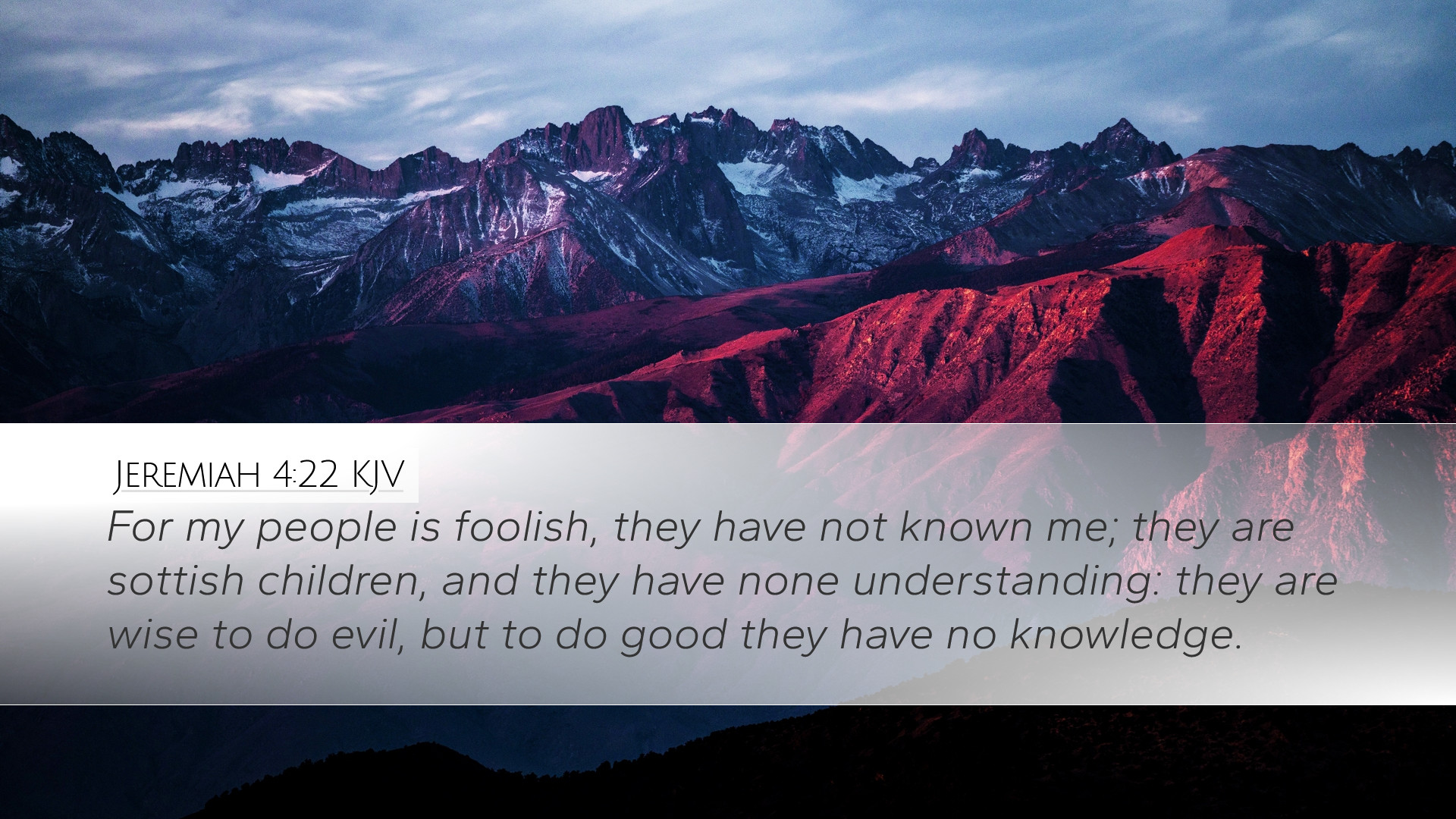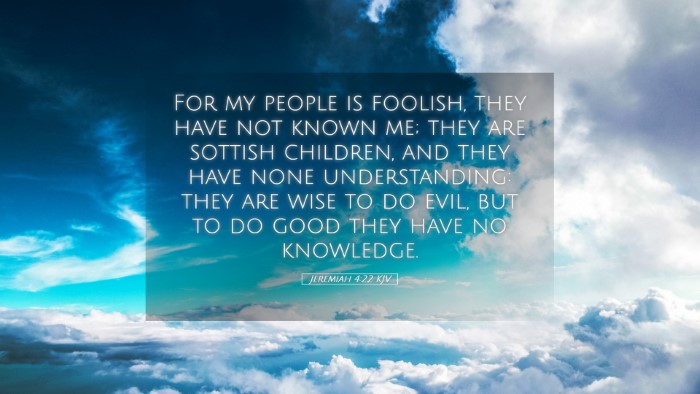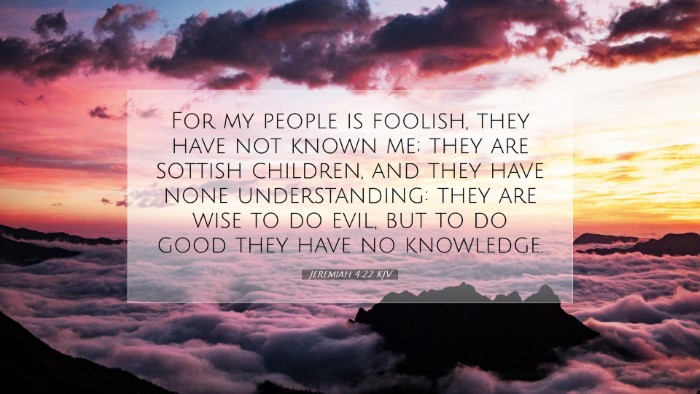Commentary on Jeremiah 4:22
Jeremiah 4:22 states, "For my people are foolish, they have not known me; they are sottish children, and they have none understanding: they are wise to do evil, but to do good they have no knowledge."
Contextual Overview
This verse finds its place in a larger narrative where God, through the prophet Jeremiah, laments the foolishness of His people. The slate of judgments and the call to repentance echo throughout the book. Jerusalem is on the brink of devastation due to the covenant unfaithfulness of its inhabitants. The stark contrast between their capability for evil and ignorance of good is a central theme in this verse.
Commentary Insights
Matthew Henry's Commentary
Henry highlights the profound irony present in the verse: the people possess wisdom in committing evil acts while remaining oblivious to God’s nature and decree. He illustrates that their foolishness stems from a neglect of knowing God and His commandments, resulting in a spiritual blindness that leads to their downfall. This commentary urges a reflection on how true wisdom is rooted in a relationship with God and adherence to His ways.
Albert Barnes' Commentary
Barnes provides a thorough analysis of the term "sottish," indicating that it refers to the unwitting foolishness of children. He points out the biblical metaphor of children often representing immaturity and a lack of understanding. In a practical sense, he warns that the human tendency to gravitate toward evil actions—despite the lack of understanding of righteousness—signals a troubling moral decay. Barnes emphasizes the grace necessary to overcome this inherent foolishness through the knowledge of God's Word.
Adam Clarke's Commentary
Clarke underscores the central issue of ignorance where it pertains to the knowledge of God. He indicates that the Hebrew root for “know” implies a deeper connotation of relational awareness, which the people of Judah fail to maintain with their Creator. Clarke appreciates the poetic parallel drawn between wisdom in evil and ignorance in good, suggesting that engaging in sin has become second nature, while living righteously is foreign. He encourages a self-examination among leaders and laypersons alike about what it means to truly know God in their life practices.
Theological Reflections
This verse prompts serious theological reflection on human nature and the moral state of societies, particularly as it depicts the dichotomy between understanding and action. The implications of knowing God versus knowing evil speak to the necessity of spiritual enlightenment through divine revelation. The wisdom of God, accessible through scripture and prayer, challenges the prevalent sinful wisdom that saturates the world.
- Foolishness of Humanity: The text drives home the idea that without divine insight, humanity is prone to foolishness, particularly in moral choices.
- The Nature of Knowledge: The pursuit of knowledge should not end with intellectual understanding; it must include a personal relationship with God to guide moral living.
- The Role of Repentance: A sincere acknowledgment of folly leads to repentance and restoration, essential for a healthy relationship with God.
Applications for Ministries and Personal Growth
The challenges presented in Jeremiah 4:22 are applicable across various aspects of church life and personal faith journeys. Here are several applications:
- Education: Pastors are encouraged to teach congregants the importance of knowing God through scripture, emphasizing the foundational truths that guide ethical living.
- Discernment: In an age filled with alluring temptations presenting as wisdom, believers are called to develop discernment based on biblical knowledge.
- Community Engagement: The church must engage in a redemptive dialogue about moral choices and provide examples of wisdom in action against the backdrop of societal evils.
Conclusion
Jeremiah 4:22 serves as a sobering reminder of humanity's propensity toward foolishness apart from God’s illumination. The combined insights from Henry, Barnes, and Clarke reveal the layered meanings behind this single verse. For pastors, students, theologians, and Bible scholars, it presents a significant challenge to evaluate our own knowledge of God and the subsequent implications for our behavior. As we reflect on these themes, may we seek a deeper relationship with God that informs our understanding and empowers our actions towards goodness in a world rife with folly.


